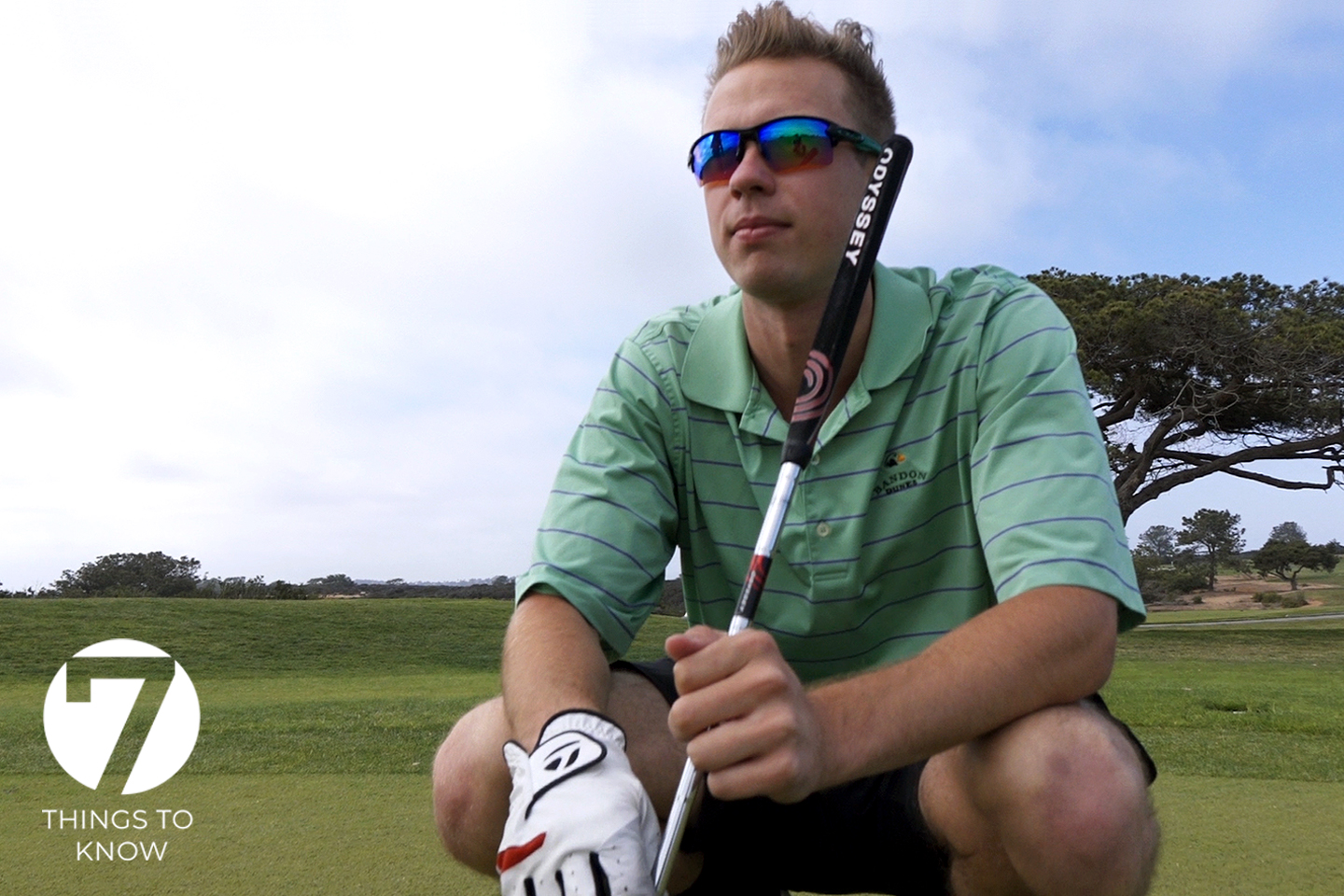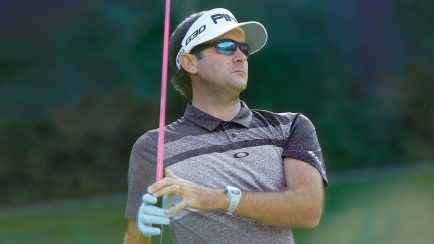So your golf game is strong, but your eyes aren't as dominant. Say the sun is shining directly in your line of sight as you approach your shot and it's keeping you from seeing par. Or you're on the fairway about to hit an ace and your shades fall right off your face. In order to keep your composure and your eyes in check, whether on or off the course, it's important to know what sunglasses to buy to keep your golf game as up to par. Look no further, SportRx has the 7 Things You Need to Know Before You Buy Golf Sunglasses. So give it a read and let's make sure you're ready for the next day out on the course!

1. Contrast Enhancing Lenses
The best way to describe contrast-enhancing lenses is to say that they provide superior vision for 'fun in the sun'. These lenses use certain tints, coatings and polarized filters to affect how we perceive color. The option to go with these kinds of lenses depends on your personal preference; the different colors affect various feelings and that may help or hurt your game. If illuminating your surroundings with a rose-tinted lens makes you see the course with more vibrancy, then by all means, choose those lenses and let them light up your game. If a yellow-tinted lenses bothers your eyesight or is simply not your style, then don't let it throw you off. The function of a color enhancing lenses is articulate to each individual person. Choose what's right for you.
2. More Pop, Less Stop
So you decided to go with a color enhancing lens but you're not sure which one to get. Golf sunglasses generally come in three different shades; brown, rose copper and green. Typically the go-to shade is brown because there's no significant alteration of true colors; they tend to improve contrast both on the grass and in blue skies which can help you track your ball as it soars through the air. The rose copper lens helps you see the contours of the course, the break and the grains on the green. This shade is most ideal for putting on the green. Greens and grays tend to not be the first choice for golfers unless you have extremely light-sensitive eyes because these colors' main function is to help protect your eyes from brightness. However, if color distortion with the other shades bothers you, then these are the way to go.
3. Proper Lens Coverage
For a full game of golf, you'll want full eye coverage. A full frame sunglass will protect your eyes no matter the tilt of your head or the angle of your body. They block UV rays from all directions and help resist glare. Depending on the size of your face, a taller lens may be most ideal for you. They supply a larger area of coverage and can be more beneficial for your eyes in terms of the angle of your head when hitting the ball. A larger frame can keep any sun from peeking in and striking your chance of hitting a hole in one.
4. Non-slip Grip
A non-slip grip is generally always the way to go when you're purchasing sunglasses for a sport. Especially in golf when your head is always in the game, it's most ideal that your sunglasses stay on your head and not on the ground. Choosing to go with a non-slip grip ensures that you'll never worry about them falling off and ruining your stroke. This feature aids in comfort and security when you're spending the whole day on the course. Plus, it can get hot out there, and a non-slip grip helps your sunglasses hold on through all your sweaty hours on the golf course.
5. Comfort & Fit
Above all else, comfort is key and you shouldn't neglect that when picking a pair of golf sunglasses. To find the best fit, sunglasses with rubberized nose bridges and temples aid for comfort and a great fit. Having these means you can change them depending on whether you're on the course or off. You'll want a pair that is so comfortable you'll forget you're even wearing them. It's always helps to try on a pair or two in person; stop in to SportRx in San Diego and a friendly optician would be more than happy to help you browse the showroom for the perfect sunglasses for your golfing days.
6. To Polarize or Not to Polarize
Polarized lenses can be a great option for reducing glare caused by vertical sun rays that bounce off the green. However, they may affect your depth perception and that may throw off your mental and physical golf game. Our SportRx opticians actually do not recommend polarized golf sunglasses for that very reason. Depth perception is the aim of the game - don't ruin that birdie with a polarized lens.
7. Single Vision vs. Bifocal vs. Progressive
Well ... to each their own ... eyes. Wearing bifocals or progressive lens on the golf course may blur the ball when its not right in front of your toes. They may make the ground look closer than it actually is and of course, that'll throw off your performance. For those who do wear bifocal or progressive eyeglasses, we recommend opting away from bifocal or progressive sunglasses when on the course. Your distance correction is the most important for your golf sunglasses. However, if you feel you need your reading correction - to see the scorecard, for instance - our SportRx Opticians can help lower that area on your lenses to make the most use of your distance vision while still giving you the reading correction you need.
Come Get Your Golf Sunglasses at SportRx
So now that you know how to design the perfect pair of golf sunglasses, get your game on and customize your pair at Sportrx.com or visit us in our shop and let a friendly optician build you the sunglasses of your dreams. Ditch risky online shopping with our See Better Guarantee. Try your golfing sunglasses for 45 days and if you're not satisfied, send them back. You'll get a full refund, exchange, or credit towards a better pair. Return shipping is covered too. Get your pair of golfing sunglasses at SportRx today!





Comment 1
Leave A Comment